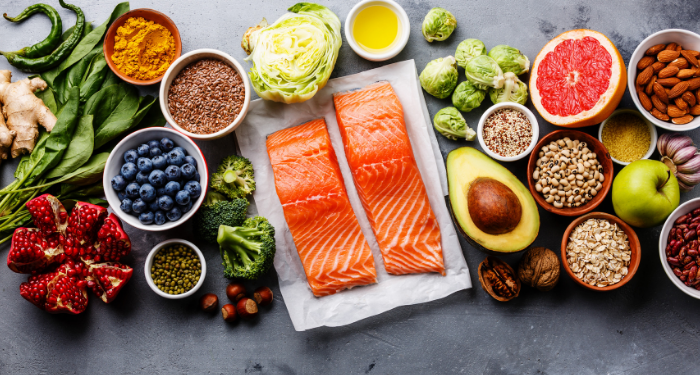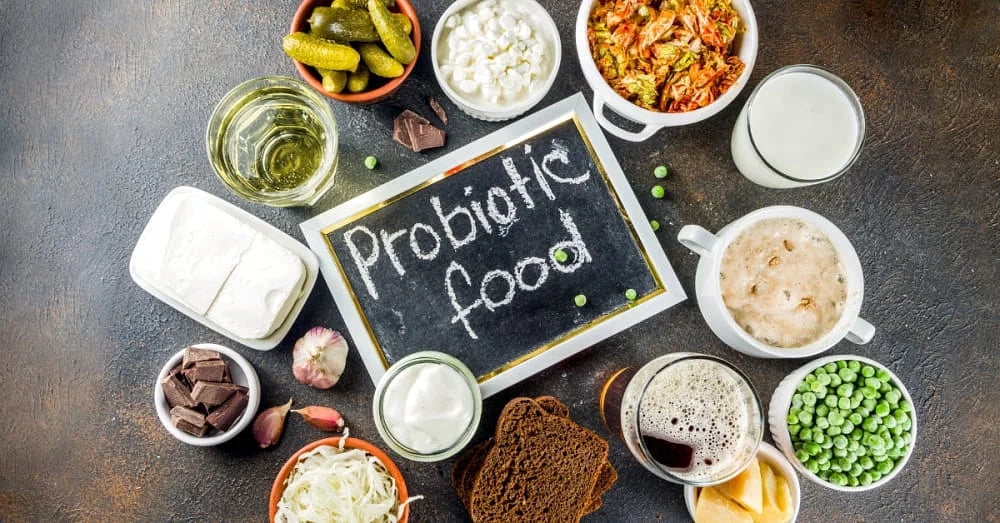
In our quest for better health and well-being, we often overlook the importance of nurturing the intricate ecosystem that resides within our gut. This bustling community of microorganisms, known as the gut microbiome, plays a crucial role in our overall health, influencing everything from digestion and nutrient absorption to immune function and even our mental state. To maintain a balanced and thriving gut microbiome, we can turn to nature's gut-friendly allies: pre and probiotic foods, as well as superfoods like fiber and anti-inflammatory powerhouses.
Prebiotics
The Fuel for Gut Health Prebiotics is a type of dietary fiber that serves as a food source for the beneficial bacteria in our gut. Think of them as the fuel that helps these tiny helpers thrive and flourish. Prebiotics are found in a variety of plant-based foods, including:
- Onions, garlic, and leeks
- Asparagus and artichokes
- Bananas and apples
- Whole grains like oats, barley, and wheat
By consuming a diet rich in prebiotics, we provide nourishment for the good bacteria in our gut, promoting their growth and supporting a balanced microbiome. This, in turn, can lead to improved digestion, better nutrient absorption, and a stronger immune system.
Probiotics
The Reinforcements for Gut Health Probiotics, on the other hand, are the actual live beneficial bacteria that take up residence in our digestive tract. These microscopic reinforcements work in harmony with our existing gut microbiome, offering a range of health benefits. Some excellent sources of probiotics include:
- Fermented foods like yogurt, kefir, sauerkraut, and kimchi
- Probiotic-fortified foods and beverages
- High-quality probiotic supplements
By incorporating probiotic-rich foods into our diet, we introduce new strains of beneficial bacteria to our gut, helping to restore balance and diversity within the microbiome. This can aid in digestion, reduce inflammation, and even support mental health by influencing the gut-brain axis.
Fiber
The Gut's Best Friend Fiber is often hailed as a crucial component of a healthy diet, and for good reason. This indigestible carbohydrate not only promotes regular bowel movements but also acts as a prebiotic, feeding the beneficial bacteria in our gut. Fiber-rich foods include:
- Fruits like berries, pears, and avocados
- Vegetables like broccoli, Brussels sprouts, and artichokes
- Whole grains like oats, brown rice, and quinoa
- Legumes like lentils, beans, and peas
By ensuring an adequate intake of fiber, we provide sustenance for our gut microbiome while also supporting regular elimination of waste and toxins from the body. This can contribute to better overall digestive health and may even help reduce the risk of certain chronic diseases.

Anti-Inflammatory Superfoods
Inflammation is a natural response of the body's immune system, but when it becomes chronic, it can lead to a host of health issues, including gut dysbiosis (an imbalance in the gut microbiome). Fortunately, nature has provided us with a bounty of anti-inflammatory superfoods that can help combat this chronic inflammation and support a healthier gut. Some examples include:
- Turmeric, ginger, and cinnamon
- Leafy greens like spinach and kale
- Fatty fish like salmon and mackerel
- Berries like blueberries and raspberries
- Nuts and seeds like walnuts and flaxseeds
By incorporating these anti-inflammatory powerhouses into our diet, we can help reduce gut inflammation, creating a more hospitable environment for our beneficial gut bacteria to thrive. This, in turn, can support better digestion, nutrient absorption, and overall health.
Conclusion
The synergistic effect of incorporating pre and probiotic foods, along with fiber and anti-inflammatory superfoods, can have a profound impact on our gut health and overall well-being. By nurturing our gut microbiome, we not only support our digestive system but also strengthen our immune function, enhance nutrient absorption, and potentially reduce the risk of various chronic diseases.
It's important to remember that everyone's gut microbiome is unique, and shaped by factors like genetics, diet, and lifestyle. What works for one person may not work for another, and it may take some experimentation to find the right combination of gut-friendly foods that work best for you.
If you're unsure where to start or have specific health concerns, it's always a good idea to consult with a healthcare professional or a registered dietitian who can guide you in incorporating these gut-friendly allies into your diet in a way that aligns with your individual needs and goals.
Embrace the power of nature's gut-friendly allies, and you may just unlock the key to a happier, healthier gut – and by extension, a happier, healthier you.





.png)


